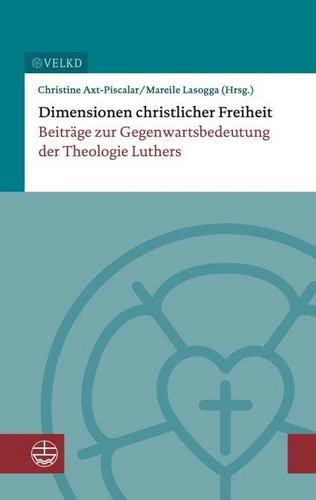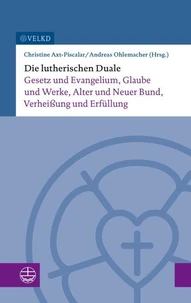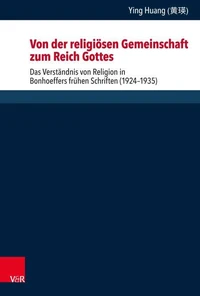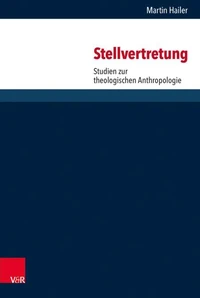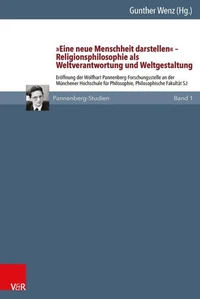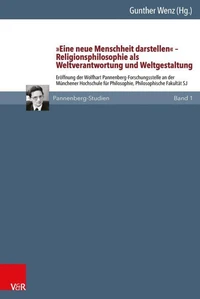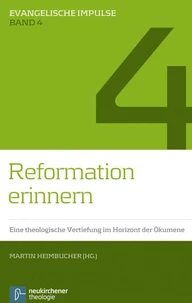Dimensionen christlicher Freiheit. Beiträge zur Gegenwartsbedeutung der Theologie Luthers
Par : ,Formats :
Disponible dans votre compte client Decitre ou Furet du Nord dès validation de votre commande. Le format PDF est :
- Compatible avec une lecture sur My Vivlio (smartphone, tablette, ordinateur)
- Compatible avec une lecture sur liseuses Vivlio
- Pour les liseuses autres que Vivlio, vous devez utiliser le logiciel Adobe Digital Edition. Non compatible avec la lecture sur les liseuses Kindle, Remarkable et Sony
 , qui est-ce ?
, qui est-ce ?Notre partenaire de plateforme de lecture numérique où vous retrouverez l'ensemble de vos ebooks gratuitement
Pour en savoir plus sur nos ebooks, consultez notre aide en ligne ici
- Nombre de pages228
- FormatPDF
- ISBN978-3-374-04021-6
- EAN9783374040216
- Date de parution10/02/2015
- Protection num.Digital Watermarking
- Taille1 Mo
- Infos supplémentairespdf
- ÉditeurEvangelische Verlagsanstalt
Résumé
Was hat es auf sich mit der christlichen Freiheit? Welche Erfahrungen von Freiheit eröffnet sie? Welche Erfahrungen von Unfreiheit hebt sie auf? Welche Bindung geht mit ihr einher? Die einzelnen Beiträge des Bandes befragen jeweils eine zentrale Schrift Luthers auf das sie leitende Verständnis von Freiheit hin. Sie bringen Luthers Einsichten und das genuine Anliegen der Reformation ins Gespräch mit der Selbst- und Welterfahrung des modernen Menschen sowie den Anfragen zeitgenössischer Freiheits- bzw.
Unfreiheitstheorien. Sie beleuchten, inwiefern das Evangelium als Grund menschlicher Freiheit in der Vielfalt ihrer Dimensionen - als innere Freiheit, Handlungsfreiheit und politische Freiheit - zu begreifen ist und erschließen so die Gegenwartsrelevanz von Luthers Theologie der Freiheit eines Christenmenschen. Mit Beiträgen von Christine Axt-Piscalar, Mareile Lasogga, Rochus Leonhardt, Wolf-Friedrich Schäufele und Notger Slenczka. [Dimensions of Christian Freedom.
Contributions to the Present-Day Significance of Luther's Theology] What is the meaning of Christian freedom? What experiences of freedom does it offer? Where does it break through experiences of unfreedom? What does this very freedom tie people to? Each contribution in this book examines a central work by Martin Luther with regard to the respective understanding of freedom. Thereby, the different contributions relate Luther's insights and the genuine concern of the Reformation with the self- and world experience of modern man, as well as with contemporary theories of freedom and unfreedom.
What is more, they illuminate in how far the gospel as a foundation of human freedom in all its varieties is to be understood as an inner freedom, freedom of action and political freedom. Thus, the articles highlight today's relevance of Luther's theology on the freedom of a Christian.
Unfreiheitstheorien. Sie beleuchten, inwiefern das Evangelium als Grund menschlicher Freiheit in der Vielfalt ihrer Dimensionen - als innere Freiheit, Handlungsfreiheit und politische Freiheit - zu begreifen ist und erschließen so die Gegenwartsrelevanz von Luthers Theologie der Freiheit eines Christenmenschen. Mit Beiträgen von Christine Axt-Piscalar, Mareile Lasogga, Rochus Leonhardt, Wolf-Friedrich Schäufele und Notger Slenczka. [Dimensions of Christian Freedom.
Contributions to the Present-Day Significance of Luther's Theology] What is the meaning of Christian freedom? What experiences of freedom does it offer? Where does it break through experiences of unfreedom? What does this very freedom tie people to? Each contribution in this book examines a central work by Martin Luther with regard to the respective understanding of freedom. Thereby, the different contributions relate Luther's insights and the genuine concern of the Reformation with the self- and world experience of modern man, as well as with contemporary theories of freedom and unfreedom.
What is more, they illuminate in how far the gospel as a foundation of human freedom in all its varieties is to be understood as an inner freedom, freedom of action and political freedom. Thus, the articles highlight today's relevance of Luther's theology on the freedom of a Christian.
Was hat es auf sich mit der christlichen Freiheit? Welche Erfahrungen von Freiheit eröffnet sie? Welche Erfahrungen von Unfreiheit hebt sie auf? Welche Bindung geht mit ihr einher? Die einzelnen Beiträge des Bandes befragen jeweils eine zentrale Schrift Luthers auf das sie leitende Verständnis von Freiheit hin. Sie bringen Luthers Einsichten und das genuine Anliegen der Reformation ins Gespräch mit der Selbst- und Welterfahrung des modernen Menschen sowie den Anfragen zeitgenössischer Freiheits- bzw.
Unfreiheitstheorien. Sie beleuchten, inwiefern das Evangelium als Grund menschlicher Freiheit in der Vielfalt ihrer Dimensionen - als innere Freiheit, Handlungsfreiheit und politische Freiheit - zu begreifen ist und erschließen so die Gegenwartsrelevanz von Luthers Theologie der Freiheit eines Christenmenschen. Mit Beiträgen von Christine Axt-Piscalar, Mareile Lasogga, Rochus Leonhardt, Wolf-Friedrich Schäufele und Notger Slenczka. [Dimensions of Christian Freedom.
Contributions to the Present-Day Significance of Luther's Theology] What is the meaning of Christian freedom? What experiences of freedom does it offer? Where does it break through experiences of unfreedom? What does this very freedom tie people to? Each contribution in this book examines a central work by Martin Luther with regard to the respective understanding of freedom. Thereby, the different contributions relate Luther's insights and the genuine concern of the Reformation with the self- and world experience of modern man, as well as with contemporary theories of freedom and unfreedom.
What is more, they illuminate in how far the gospel as a foundation of human freedom in all its varieties is to be understood as an inner freedom, freedom of action and political freedom. Thus, the articles highlight today's relevance of Luther's theology on the freedom of a Christian.
Unfreiheitstheorien. Sie beleuchten, inwiefern das Evangelium als Grund menschlicher Freiheit in der Vielfalt ihrer Dimensionen - als innere Freiheit, Handlungsfreiheit und politische Freiheit - zu begreifen ist und erschließen so die Gegenwartsrelevanz von Luthers Theologie der Freiheit eines Christenmenschen. Mit Beiträgen von Christine Axt-Piscalar, Mareile Lasogga, Rochus Leonhardt, Wolf-Friedrich Schäufele und Notger Slenczka. [Dimensions of Christian Freedom.
Contributions to the Present-Day Significance of Luther's Theology] What is the meaning of Christian freedom? What experiences of freedom does it offer? Where does it break through experiences of unfreedom? What does this very freedom tie people to? Each contribution in this book examines a central work by Martin Luther with regard to the respective understanding of freedom. Thereby, the different contributions relate Luther's insights and the genuine concern of the Reformation with the self- and world experience of modern man, as well as with contemporary theories of freedom and unfreedom.
What is more, they illuminate in how far the gospel as a foundation of human freedom in all its varieties is to be understood as an inner freedom, freedom of action and political freedom. Thus, the articles highlight today's relevance of Luther's theology on the freedom of a Christian.

